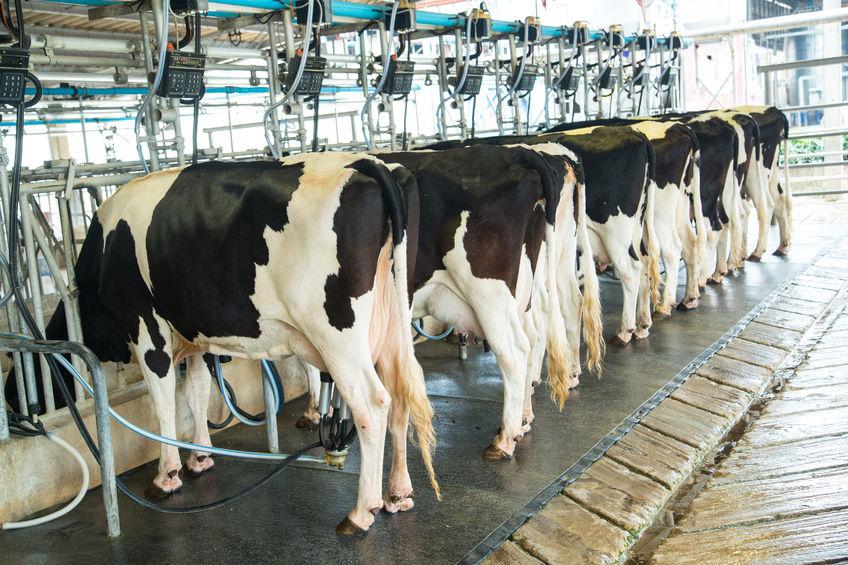
Free and frictionless access to EU markets will be vital in ensuring the UK dairy industry can thrive in a post-Brexit era, according to the NFU.
Labour availability and dealing with market volatility are other keys to a successful sector post-Brexit, according to the NFU's EU exit and international trade adviser Gail Soutar.
Mrs Soutar told delegates at the SEMEX Conference in Glasgow on Monday (15 January) that the NFU will continue to lobby Government to ensure that the dairy sector can trade with confidence and certainty.
Eighty percent of British dairy exports go to EU countries, and in 2015 these exports valued £800m.
The sector is also reliant on free movement across the Irish border, since 67 percent of all exports to the EU goes to the Republic.
Mrs Soutar said it is "absolutely vital" for the sector to ensure that access into existing markets is maintained.
"We must ensure that well-integrated, historical supply chains are not disrupted," she told delegates.
The government has been urged to invest time in creating trade deals with other countries a success, for example in providing market intelligence and research or by means of efficient export certification system.
Dairy labour
Delegates heard how access to permanent labour is also having an impact on the dairy industry and its allied industries.
A report outlining the case for UK dairy farming to maintain access to EU labour in the short term, and improve the pipeline of domestic labour in the long term, was presented to the government last year.
The report stated that current reliance on EU labour would mean an almost "catastrophic failure" within the sector should short term access to overseas workers not be maintained.
It follows news that only 4% of UK adults would consider all key aspects of working on dairy farms "personally acceptable".
But news of the Home Affairs Committee recommending the government to create a new Seasonal Agricultural Workers Scheme has been seen as welcome news for the farming industry.
Mrs Soutar added: “It is crucial that the Government addresses the sector's concerns as soon as possible to ensure that dairy farming has access to a competent and reliable workforce, now and post-Brexit.”
'Highly uncertain incomes'
Business incomes in the dairy industry have been "highly uncertain", according to Mrs Soutar, having fluctuated by an average of 74% each year since 2010.
In December last year, NFU Cymru called on the need for better market data on dairy prices and volumes as many farmers faced price cuts in the new year.
The farming union is continuing to call for better dairy market signals. It said milk price cuts "don’t work" partly because the impact is "too late and too slow in achieving its ultimate aim".
Dairy giants Muller and Arla reduced their milk prices paid to farmers in January, whilst First Milk held it. However, it has now been confirmed First Milk will be reducing its February milk price.
Mrs Soulter told delegates: “Few, if indeed any, other sectors of the economy experience such extremes of volatility
“The NFU is calling on Government to ensure that farmers have access to a range of tools to help manage volatility.
“With 2018 being a key year for Brexit negotiations, we have been offered the opportunity for change, to build a bold and ambitious policy environment for the future. I know that there is a significant amount of uncertainty on dairy farms across the country. But I also know that dairy farmers are up for the challenge.”
